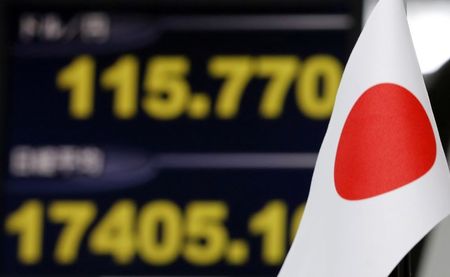By Hideyuki Sano
TOKYO (Reuters) - Asian shares were resilient in the face of a cooling Chinese economy while oil prices flirted with multi-year lows - unable to stem a drawn-out decline on fears of a glut.
MSCI's broadest index of Asia-Pacific shares outside Japan (MIAPJ0000PUS) were flat, showing a muted response to a flurry of Chinese data which was either in line with or slightly below expectations.
Growth in industrial output declined more than expected to 7.7 percent from a year earlier, while fixed investment growth slumped to a 13-year low, and the tempo of retail sales slowed.
Still, Shanghai shares remained near two-year highs (SSEC) in the hope of more foreign buying before the Shanghai-Hong Kong exchange link is launched, as well as policy support to bolster the economy.
Japan's Nikkei (N225) added 1.1 percent to a seven-year high, continuing to rise on expectations Prime Minister Shinzo Abe will postpone a planned tax hike next year to support the economy.
European shares are expected to open on a rebound from the previous day's falls, with spreadbetters putting France's CAC40 (FCHI) and Germany's DAX <.GDAX> at up 0.4 percent from previous close.
In oil, Brent crude futures
Saudi Arabia's oil minister did not make clear on Wednesday whether the kingdom would support a cut in oil production when OPEC meets on Nov. 27, even as he dismissed talk that Saudi Arabia is engaged in a "price war" with fast-growing U.S. shale oil or other rival producers.
Even rising tensions in Ukraine did not lift oil prices. Ukraine said on Wednesday it was redeploying troops in the east because of fears that separatists will launch a new military offensive. Russia denies it has sent troops to reinforce the rebels.
"There are not many bullish factors to lift the market now," said Avtar Sandu, senior manager for commodities at Phillip Futures in Singapore. "But it's not a one-way street down. Those who have been selling want to take profits around this area."
As lower oil prices dragged on U.S. energy stocks, the S&P 500 (SPX) lost 0.1 percent on Wednesday, ending a five-day winning streak. (N)
Still, the sharp fall in energy prices is easing inflationary pressures globally, allowing central banks to adopt looser monetary policy that will eventually support the prices of riskier assets, said Nobuhiko Kuramochi, strategist at Mizuho Securities.
"In Asia, countries such as Vietnam and South Korea have cut rates, so did Sweden... Given the disinflationary trend worldwide, we could see more central banks easing, which should support the global economy," he said.
In currencies, sterling fell to a 14-month low of $1.5760
The dollar held firm against other currencies on the prospects of solid growth in the Unites States, though it lacked momentum as its failure to gain on a fairly upbeat U.S. jobs data last week has prompted traders to lock in recent gains.
The dollar index stood at 87.814 (DXY), off Friday's four-year peak of 88.190.
Against the yen, the dollar traded at 115.79 yen

Gold was at $1,160.76 per ounce
(Additional reporting by Jacob Gronholt-Pedersen in Singapore; Editing by Eric Meijer & Kim Coghill)
